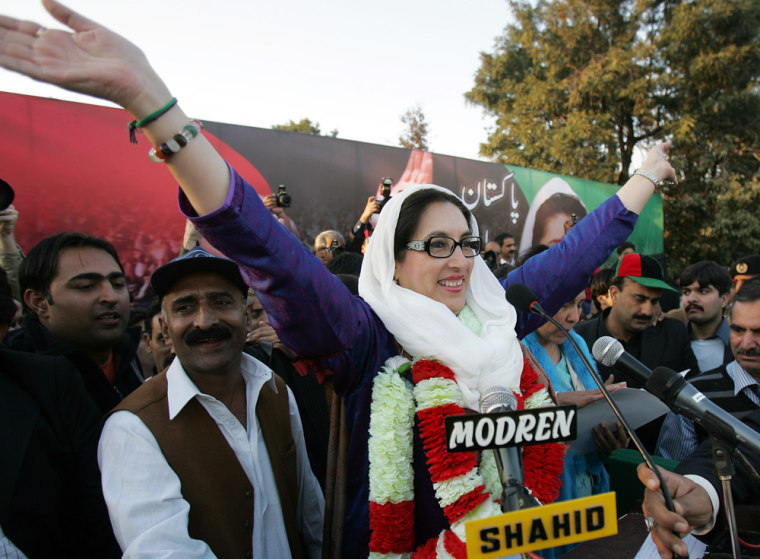No matter what can be said about Benazir Bhutto (and there’s plenty of deserved controversy), her assassination in Rawalpindi was a blow to hopes for stability in South Asia. There is, in theory, a silver lining to every cloud, but it is difficult to find one in this tragedy.
With at best a tenuous grip on his country, Pakistani President Pervez Musharraf gains nothing from her death. Anything that contributes to trouble erodes his authority, and Bhutto’s assassination is just the latest in an escalating series of difficulties. He has detractors among the opposition, but he’s also under pressure from elements of his own armed forces — some of whom actively support Muslim revolutionaries. Even after repeated prodding by the United States, the Pakistani army rarely ventured into the Pushtun territory in the west that harbors al-Qaida, the Taliban and other corrosive elements. The U.S. has been conducting a few of our own operations in that vacuum. Meanwhile, emboldened terrorists have been killing Pakistanis with increasing frequency.
Bhutto’s organization and other opposition figures, including Nawaz Sharif, have asserted that Musharraf is responsible for Bhutto’s death. But that doesn’t make a great deal of sense. Musharraf is the big loser in this mess, and he is not the kind of leader who is strong or skilled enough to perform well in this kind of crisis.
The winners and the likely perpetrators of this crime are Muslim revolutionaries, al-Qaida and similar elements whose principal tactic is to create and exacerbate political instability. Two previous attempts were made on Bhutto’s life, and there have been two serious attempts to assassinate Musharraf as well. These acts are viewed by fundamentalists, quite properly, as having a cumulative effect. Even unsuccessful attempts have utility: they demonstrate Musharraf’s lack of control; they motivate him to employ Draconian measures and thus erode public confidence; they reduce popular support for Musharraf; and they separate the army from the government and the government from the people.
Al-Qaida and their allies have lots of patience, and Musharraf does not. He may postpone elections scheduled for next month, but this will inflame the opposition and make the terrorists’ job easier. His best bet is to hold elections on schedule, rather than give the opposition time to coalesce into viability. In this vein, it’s not surprising that Sharif has announced that he will boycott the election and he has no chance if it is held on schedule. Musharraf may also suspend the constitution again, and that won’t help either.
Meanwhile, India is very concerned that instability in Pakistan erodes its own security, and Pakistani government inaction or over-reaction will be viewed by India with great trepidation. Throw nuclear weapons into the mix, and you have a recipe for potential disaster.
As for the United States, our government can help by doing something it has so far demonstrated reluctance to do: be quiet. Critical and inflammatory public statements are not conducive to the resolution of crises, and the best way to help Pakistan is to do so in private. We may have squandered some of the $5 billion in aid Pakistan has received recently, and we may not like the idea that Pakistani politics don’t operate like those in New Hampshire, but if we’ve learned one thing in the last five years, it’s that when we try to impose our system on others, the people who tend to win are our enemies, not our friends.
Jack Jacobs is a military analyst and a retired U.S. Army colonel. He earned the Medal of Honor for exceptional heroism on the battlefields of Vietnam and also has three Bronze Stars and two Silver Stars.
